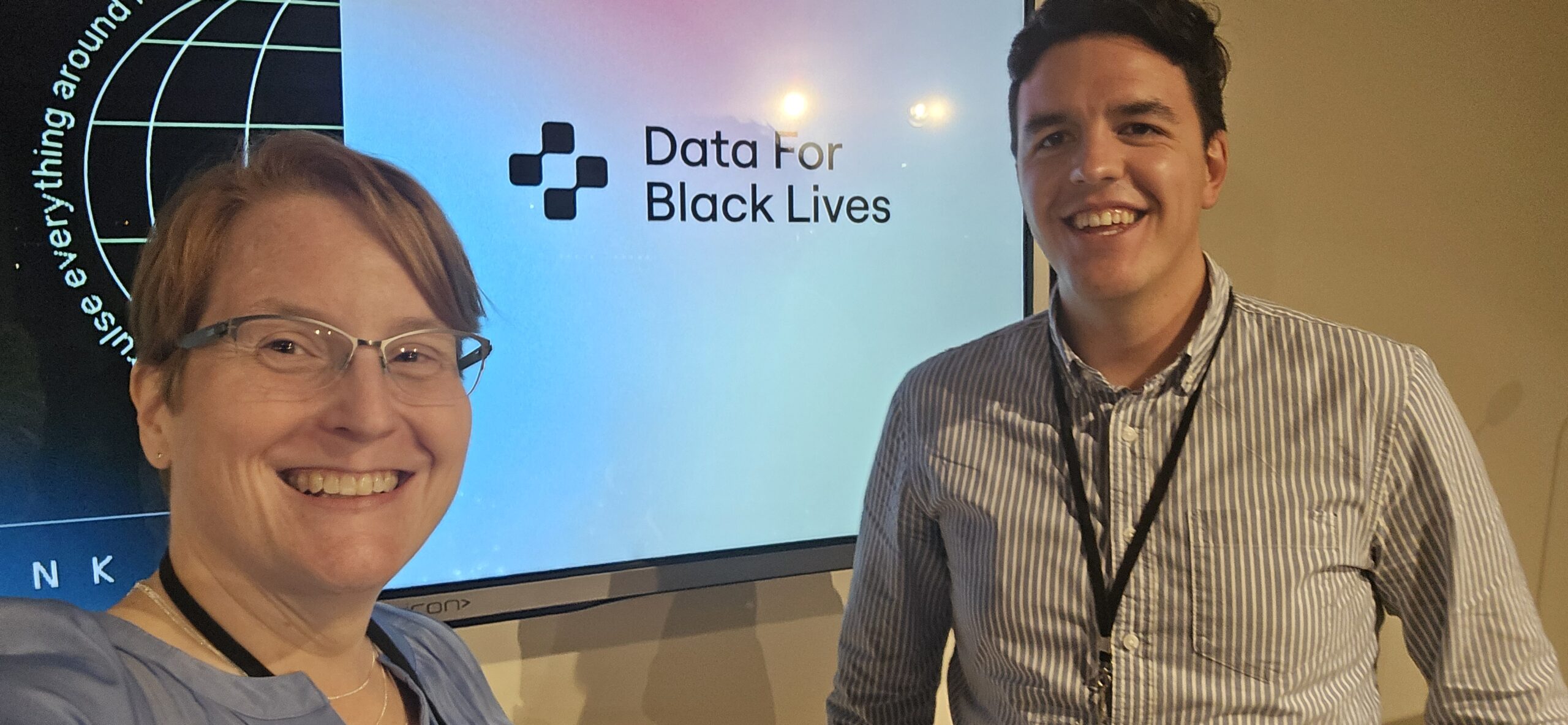Data for Equity: Reflections on Data for Black Lives III

By K’lila Nooning and Angel Aliseda with the help of Perplexity.AI
This November, we were honored to attend and present at the third-annual Data for Black Lives Conference (D4BL III) at the Pérez Art Museum in Miami. D4BL III brought together activists, researchers, and technologists to explore the intersection of data, technology, and racial justice. We met people from all across the country—and around the world—who share our passion for putting data to work for the public good.
The Average is Not The Story: Disaggregating Federal Data Sources with the City Data Explorer
During D4BL III, we had the unique opportunity to present a workshop rooted in our work on the GovEx Research and Analytics team. This session, The Average Is Not the Story: Disaggregating Federal Data Sources with the City Data Explorer, used GovEx’s new City Data Explorer (CDE), a tool that aggregates, explores, and visualizes city-level data with an emphasis on disaggregation, to highlight the limits of using citywide averages to understand resident experiences. (The CDE tool is currently in testing and review, and will be released to the public in the coming months.)
We illustrated how disaggregating data reveals the varied experiences of communities within a city, focusing specifically on the experiences of Black residents. Participants used the CDE to compare the quality of life for an average resident to that of a Black resident in Miami, discussing how these insights could drive efforts to improve equity.
The group discussed data accessibility and many attendees expressed enthusiasm for having access to cleaned and processed data that could be easily shared with non-experts.
The workshop concluded with key takeaways:
- Aggregated metrics often obscure diverse experiences within cities and federal data collection approaches can be inconsistent.
- Significant gaps in disaggregated data remain due to unreliable estimates and incomplete collection. For example, the tool shows that only 21.3 percent of Black households own their homes, but without data available on the 40.3 percent of overextended homeowners by race, we can’t determine if Black Miamians are less likely than other groups to own homes they can’t afford.
Conference Highlights
- AI for Liberation
This panel examined the historical and global impacts of artificial intelligence. Speakers drew parallels between past data-driven oppression and modern practices, emphasizing the need for community-focused technology development.
- Our Bodies Keep Score
In a compelling session on health disparities affecting Black women, speakers like Black Women’s Health Imperative President Linda Goler Blount highlighted the intersecting impacts of racism, gender discrimination, and economic factors on health outcomes. Panelists shared personal experiences, emphasized the role of systemic racism-induced stress, and highlighted the importance of community-controlled data collection and interpretation.
- No More Data Weapons
Another session focused on surveillance and policing, addressing strategies for protecting activists from surveillance, highlighting the importance of transparency in government data practices, and the necessity for a fundamental shift in public safety approaches. The panel explored alternative public safety models, emphasizing the need to redefine safety beyond crime statistics to focus on community well-being and social trust.
What We Learned in D4BL
Throughout D4BL III, we discussed community-driven data practices, ethical AI development, and how different organizations address health disparities using racial and social justice lenses. The sessions challenged conventional thinking and proposed innovative solutions to address systemic inequalities using data. We left Miami with a sense of urgency but also hope, recognizing that by combining rigorous analysis, community engagement, and innovative thinking, we at GovEx can contribute to a future where data and technology serve as tools for liberation and equity.
K’lila Nooning is a back-end data engineer for the GovEx Research and Analytics team.
Angel Aliseda is a researcher for the GovEx Research and Analytics team.